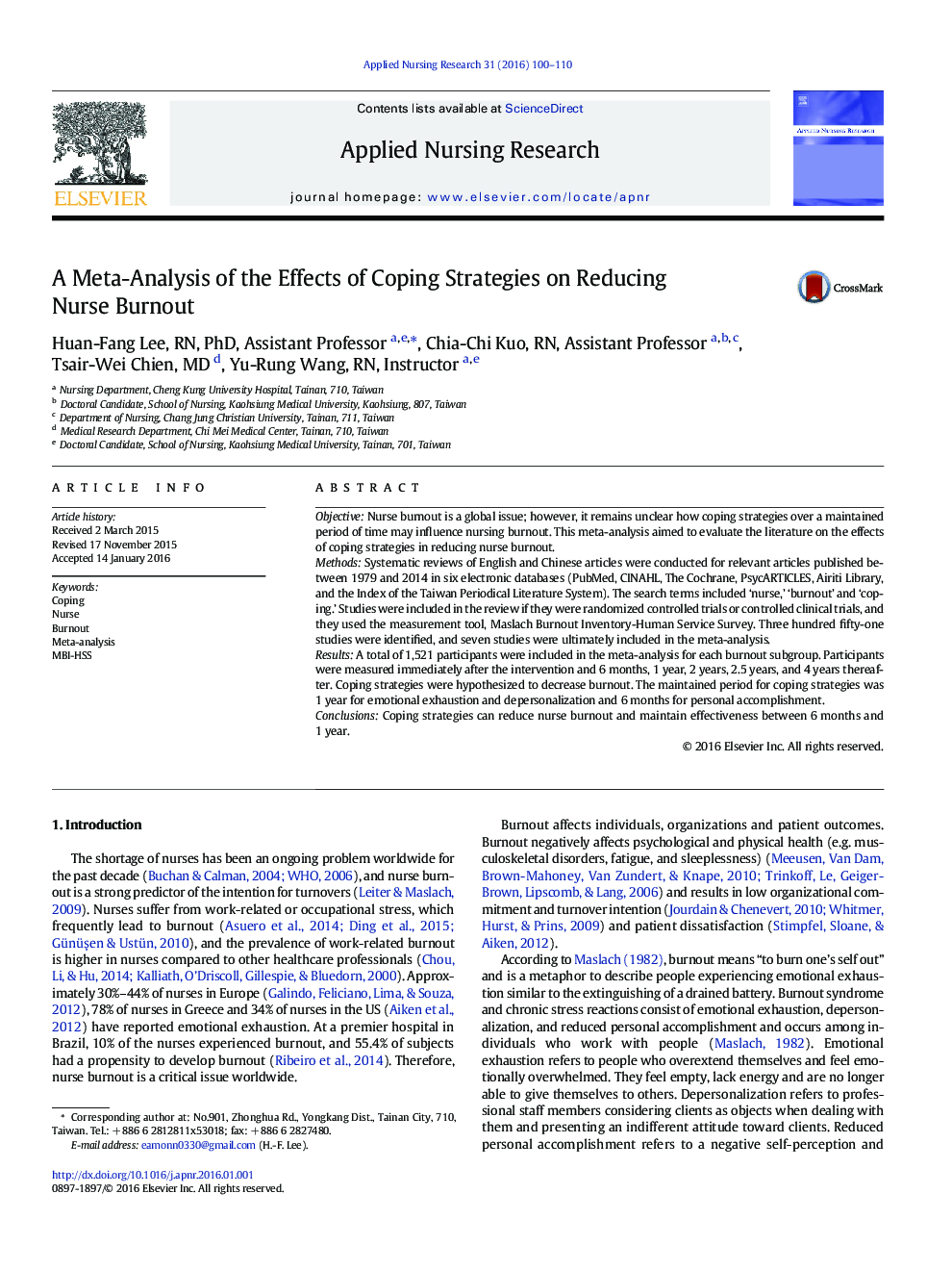| Article ID | Journal | Published Year | Pages | File Type |
|---|---|---|---|---|
| 2644955 | Applied Nursing Research | 2016 | 11 Pages |
ObjectiveNurse burnout is a global issue; however, it remains unclear how coping strategies over a maintained period of time may influence nursing burnout. This meta-analysis aimed to evaluate the literature on the effects of coping strategies in reducing nurse burnout.MethodsSystematic reviews of English and Chinese articles were conducted for relevant articles published between 1979 and 2014 in six electronic databases (PubMed, CINAHL, The Cochrane, PsycARTICLES, Airiti Library, and the Index of the Taiwan Periodical Literature System). The search terms included ‘nurse,’ ‘burnout’ and ‘coping.’ Studies were included in the review if they were randomized controlled trials or controlled clinical trials, and they used the measurement tool, Maslach Burnout Inventory-Human Service Survey. Three hundred fifty-one studies were identified, and seven studies were ultimately included in the meta-analysis.ResultsA total of 1,521 participants were included in the meta-analysis for each burnout subgroup. Participants were measured immediately after the intervention and 6 months, 1 year, 2 years, 2.5 years, and 4 years thereafter. Coping strategies were hypothesized to decrease burnout. The maintained period for coping strategies was 1 year for emotional exhaustion and depersonalization and 6 months for personal accomplishment.ConclusionsCoping strategies can reduce nurse burnout and maintain effectiveness between 6 months and 1 year.
